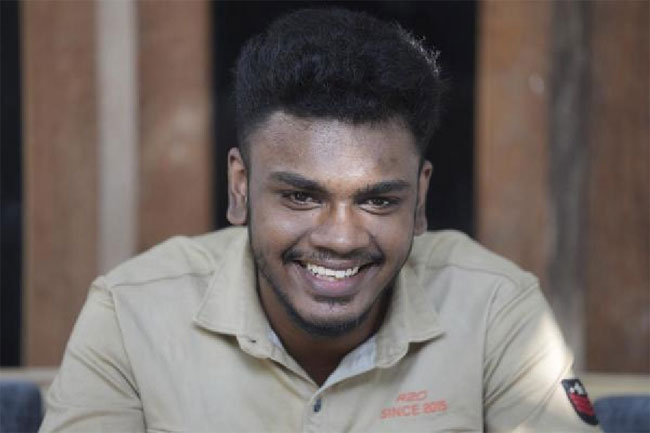The boy who lived: ‘Baby 81’, a survivor of the devastating Sri Lanka tsunami in 2004
The boy who lived: ‘Baby 81’, a survivor of the devastating Sri Lanka tsunami in 2004

Pulled from the mud as an infant after the devastating Indian Ocean tsunami in 2004 and reunited with his parents following an emotional court battle, the boy once known as “Baby 81” is now a 20-year-old dreaming of higher education.
Jayarasa Abilash’s story symbolised that of the families torn apart by one of the worst natural calamities in modern history, but it also offered hope. More than 35,000 people in Sri Lanka were killed, with others missing.
The 2-month-old baby was washed away by the tsunami in eastern Sri Lanka and found some distance from home by rescuers. At the hospital, he was No. 81 on the admissions registry.
His father, Murugupillai Jayarasa, spent three days searching for his scattered family, with little left to his name in those early hours but a pair of shorts.
First he found his mother, then his wife. But their infant son was missing. A nurse had taken the baby from the hospital, but returned him after hearing that his family was alive.
The ordeal, however, was far from over. Nine other families had submitted their names to the hospital, claiming “Baby 81” as their own, so the hospital administration refused to hand over the child to Jayarasa and his wife without proof.
The family went to the police. The matter went to court. The judge ordered a DNA test, a process that was still in its early stages in Sri Lanka.
But none of the nine other families claimed the baby legally, and no DNA testing was done on them, Jayarasa said.
“The hospital named the child ‘Baby 81’ and listed the names of nine people who claimed the child, omitting us,” he said.
“There was a public call to all those who said the child was theirs to subject themselves for DNA testing, but none of them came forward,” he recalled. Jayarasa said his family gave DNA samples and it was proven the child was theirs.
Soon, the family was reunited. Their story drew international media attention, and they even visited the US for an interview.
Today, Abilash is sitting for his final high school exam. Solid and good-natured, he hopes to attend a university to study information technology.
He said he grew up hearing about his story from his parents, while classmates teased him by calling him “Baby 81” or “tsunami baby”. He was embarrassed, and it worsened every time the anniversary of the tsunami arrived.
“I used to think ‘Here they have come’ and run inside and hide myself,” he said as journalists returned to hear his story again.
His father said the boy was so upset he wouldn’t eat at times.
“I consoled him saying, ‘Son, you are unique in being the only one to have such a name in this world,” he said.
Later, as a teenager, Abilash read more about the events that tore him from his family and brought him back, and he lost his fear.
He knows the nickname will follow him for life. But that’s all right.
“Now I only take it as my code word,” he said, joking. “If you want to find me out, access that code word.”
He continues to search online to read about himself.
His father said memories of those frantic, searching days 20 years ago remain fresh, even as others fade.
Over the years, the extensive publicity his family received has also affected them negatively, Jayarasa said.
His family was excluded from many of the tsunami relief and reconstruction programmes because government officials assumed they had received money during their visit to the US.
The experience also led to jealousy, gossiping and ostracising of the family in their neighbourhood, forcing them to relocate.
The father wants his son and other family members to remain grateful for their survival, and he wants Abilash to become someone who can help others in need.
From time the boy was a toddler, his father collected small amounts of money from his work at a hairdressing shop. When Abilash turned 12, the family erected a small memorial to victims of the tsunami in their front yard. It shows four cupped hands.
The father explained: “A thought arose in my mind that since all those who have died have gone, leaving Abilash behind for us, why not a memorial site of our own to remember them every day.”
Source: AP
–Agencies

